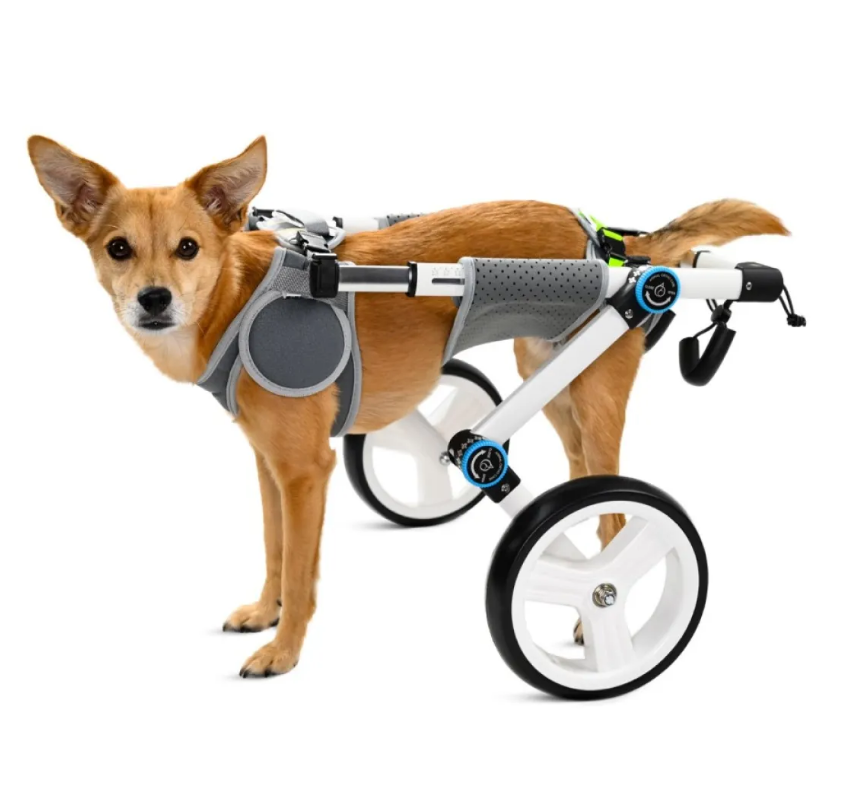Seeing a dog struggle with mobility issues is heartbreaking for any pet owner. Fortunately, advances in veterinary medicine have led to the development of mobility aids for dogs with disabilities, including wheelchairs. However, a common concern among pet owners is whether their dog in a wheelchair is actually happy.
Understanding canine mobility issues:
Before delving further into this topic, it's crucial to understand why a dog may need a large dog wheelchair. Mobility problems in dogs can be caused by a variety of factors, such as degenerative disease, spinal injury, neurological disease, or congenital disabilities. These conditions can severely impact a dog's ability to walk or move freely, affecting their quality of life and overall well-being.
Benefits of dog wheelchairs:
Contrary to common misconceptions, wheelchairs can significantly improve the quality of life of disabled dogs.
- Regaining Independence: Wheelchairs allow dogs to regain mobility and independence, allowing them to move around, explore, and engage in activities they love.
- Improves physical health: By providing support and reducing pressure on the affected limbs, a wheelchair can help prevent further strain or injury on your dog's body. They also promote better circulation and muscle strength.
- Enhances mental health: Dogs are resilient animals and can adapt well to changes in their environment. With the assistance of a large dog wheelchair for back legs, many disabled dogs experience increased self-confidence, reduced frustration, and enhanced happiness.
- Social Interaction: Wheelchairs designed specifically for large dogs enable these pets to interact socially with humans and canine companions, preventing feelings of isolation and promoting mental stimulation.
- Pain Management: Dogs in wheelchairs often experience less pain and discomfort associated with mobility issues, thereby improving overall quality of life.
Is a dog in a wheelchair happy?
The question of whether a large dog in a wheelchair for back legs is happy ultimately depends on a variety of factors, including the dog's personality, the level of support provided by its human caregiver, and their overall quality of life. However, countless touching stories and testimonials from pet owners attest to the improvements in happiness and well-being experienced by dogs in wheelchairs.
Conclusion:
While the idea of a dog needing a wheelchair may initially elicit feelings of sadness or pity, it's important to realize that mobility aids can profoundly improve the lives of dogs with disabilities. Wheelchairs enable these resilient animals to thrive despite physical limitations by providing them with the opportunity to move, play and live life to the fullest. As pet owners, we have a responsibility to support and advocate for the welfare of our furry pets, ensuring they receive the care and help they need to live happy, fulfilling lives.



0 Comments